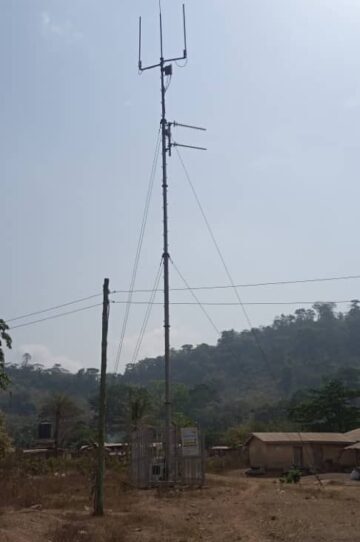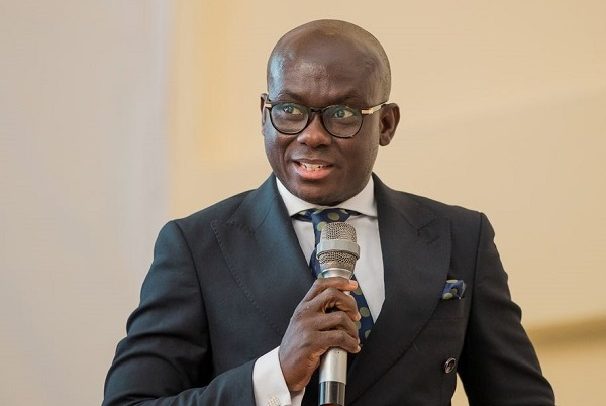
Worldreader, a non-governmental organisation (NGO) committed to providing books for children, has partnered local publishers to digitise textbooks and local storybooks and distribute them to schools using the Kindle e-reader, an electronic device purposely built for reading.
The e-reader, which was perfected for Africa to hold hundreds of books, can maintain a battery charge for almost a month.
The organisation is collaborating with Afram Publishers, Smartline, EPP and other publishers to digitise the textbooks, including the Ghana Education Service (GES)-approved ones, for schoolchildren.
Collaboration with GES
Worldreader is currently working closely with the GES to boost the reading culture among schoolchildren in the country through the Kindle e-reader.
Since 2010 when the organisation was established, 5,494,713 readers from 52 countries have so far enrolled in the Worldreader’s programme, with 477,367 monthly readers from its library of 45,904 books.
The organisation has so far deployed 6,849 Kindle e-readers in 63 schools, reaching out to 17,468 readers, out of which 13,568 are schoolchildren.
Currently, the organisation supplies the kindle e-readers free of charge to some deprived public schools in the Eastern, Volta, Greater Accra and Upper West regions.
In an interview with the Daily Graphic, the Director of Worldreader in charge of West Africa, Ms Carol Williams, said the Worldreader team worked closely with district education offices, headteachers and school project managers to help them effectively use the e-readers loaded with relevant content in the classroom.
According to her, that gave them the skills needed to have a modern approach to help children learn and read.
Six years down the line
Ms Williams is happy that six years after the establishment of the organisation, “students in Worldreader’s digital reading programmes are reading more and reading better.
“Currently, there are over 500 digital reading programmes in schools and libraries across sub-Saharan Africa.
“In Ghana alone, Worldreader has distributed over a million e-books to schools,” she told the Daily Graphic.
Worldreader mobile App
Ms Williams explained that since building a culture of reading was not something that took place only in the classroom, the organisation developed an App known as the Worldreader Mobile App, a handy tool that gave readers access to thousands of books for free.
“The App also allows users to download books online and read offline,” she added and explained that it enabled the organisation to get its library of over 50,000 e-books into the hands of readers at all levels using devices they already own.
Readership
Ms Williams said currently, over 43 million people had access to the App worldwide, with 39,000 active readers in Ghana, adding that 391,526 readers had downloaded the App since 2010.
“We also have plans of going to university campuses and on ‘trotros’ to promote the importance of reading,” she said.
She said the App would promote reading through after-school activities and encouraged parents and siblings to download the App and read to their children.
Sustainability
To ensure that each school is able to sustain its digital reading programmes, Ms Williams explained that every year, an annual digital reading summit was held where teachers who were managing the programme, local publishers and development partners came together to do capacity building around digital reading.
Mission
Explaining the mission of the organisation, Ms Williams said the Worldreader was on a mission to bring digital books to every child and his/her family so that they could improve their lives.
“We build on digital platforms and mobile connectivity in the developing world to make books available to children and families who need them the most. We provide e-readers to schools in need both through sponsorships and sales.
“We saw that cellphones were widely prevalent in developing countries, so we created a mobile App that runs on feature phones and Android devices.
“Ours is the most effective and inexpensive way to distribute books to those in limited and no-access areas,” she said and added that with more people reading with Worldreader every month, we are walking towards a world where the practice of reading is commonplace and where illiteracy is a thing of the past.
Impact
“Our research shows that students enrolled in Worldreader’s programme dramatically increased reading ability (measured by improvements in the words they were able to correctly read per minute), leading to the number of students who couldn’t read a single word in their mother tongue dropping from 65 per cent down to nine per cent.
“This joins our other research that has shown that girls learn to read at the same rate as boys (a rarity in most schools), and that when girls are given access to e-books, they read five to six times more than boys,” he said.
Background
Giving a background to the establishment, Ms Williams said, “We realised many schools didn’t have enough textbooks or storybooks, or because of logistics and transportation issues, the schools never received the books. To add to that, many primary school children could not read.”
Worldreader, a non-governmental organisation (NGO) committed to providing books for children, has partnered local publishers to digitise textbooks and local storybooks and distribute them to schools using the Kindle e-reader, an electronic device purposely built for reading.
The e-reader, which was perfected for Africa to hold hundreds of books, can maintain a battery charge for almost a month.
Read Full Story






















Facebook
Twitter
Pinterest
Instagram
Google+
YouTube
LinkedIn
RSS